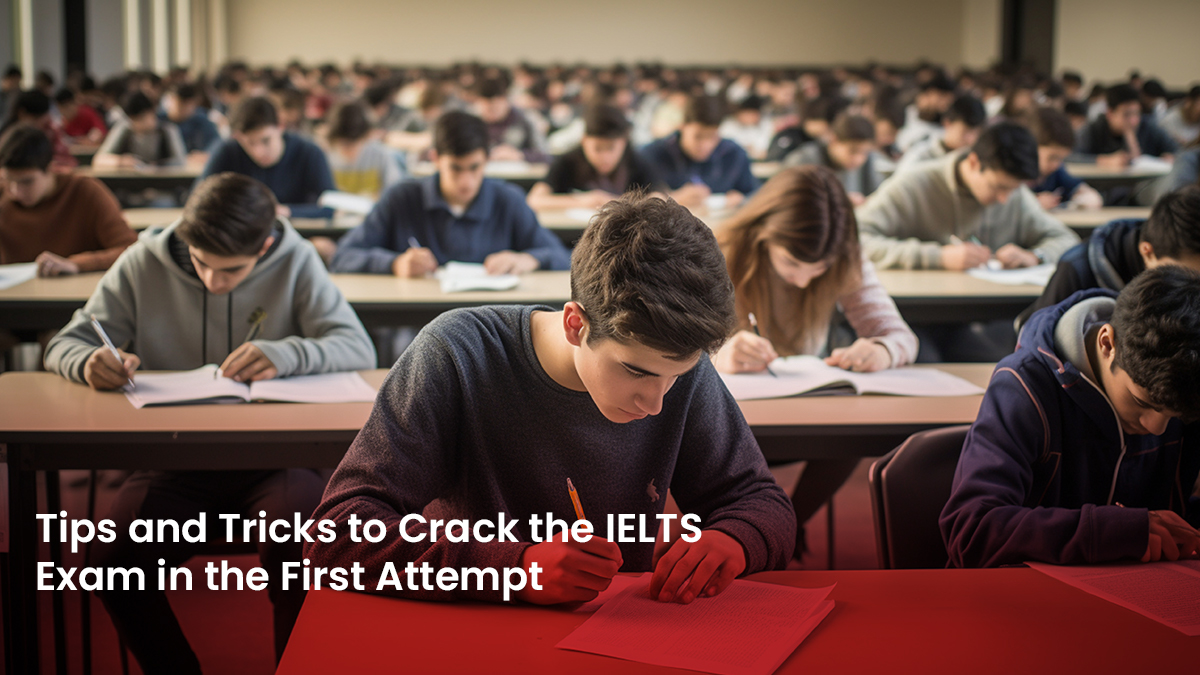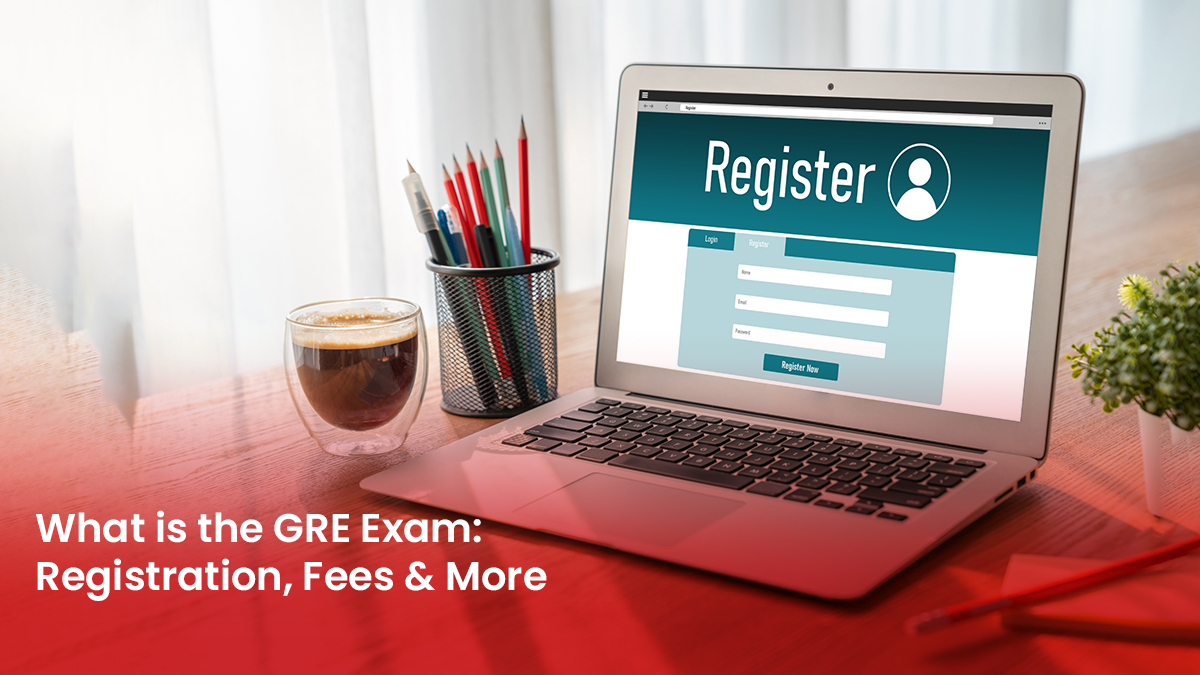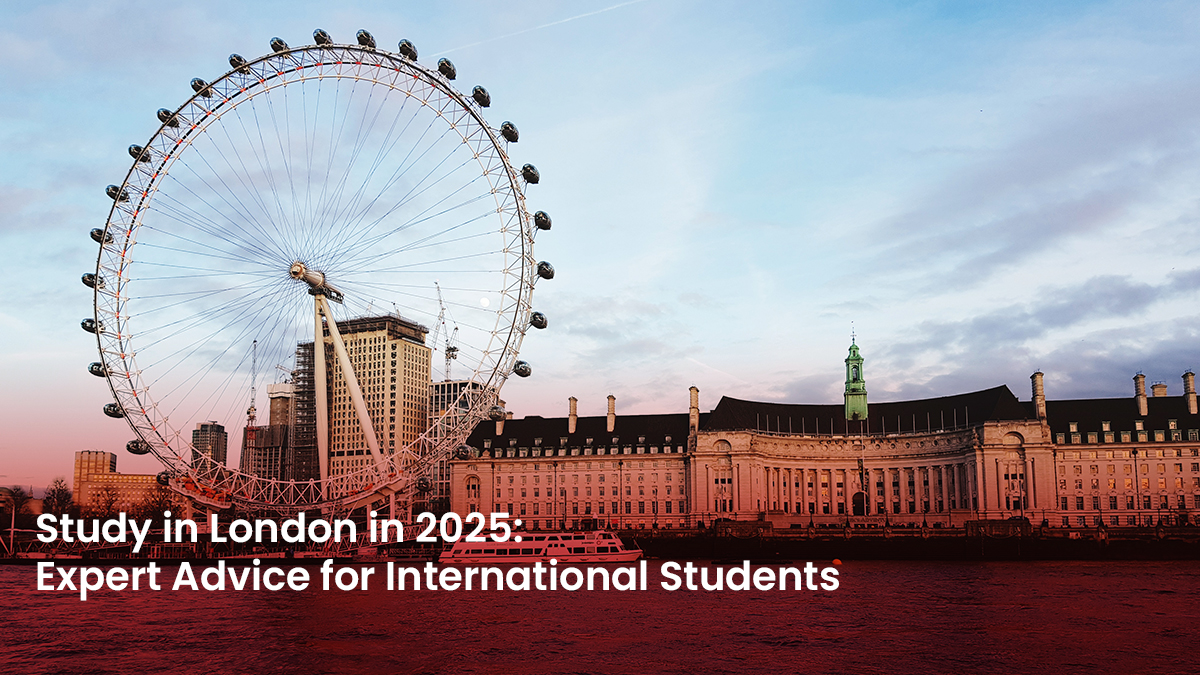Acing the IELTS exam can be your passport to exciting academic opportunities worldwide. But with its diverse sections and time constraints, it can also feel daunting. Don’t worry, future global scholar! This guide equips you with powerful tips and expert strategies to clear IELTS exam in first attempt.
Demystifying the IELTS exam
The IELTS (International English Language Testing System) assesses your English language proficiency for academic or professional purposes. It’s a four-part test:
- Listening (30 minutes): You’ll listen to recordings of native English speakers and answer questions about the content.
- Reading (60 minutes): You’ll read three long passages and answer various questions testing your comprehension.
- Writing (60 minutes): You’ll complete two writing tasks: describing visuals and composing an essay.
- Speaking (11-14 minutes): You’ll engage in a conversation with an examiner on various topics.
To achieve your desired band score (a score between 1 and 9, with 9 being the highest), a strategic approach is key. Let’s delve into each section and explore effective strategies.
Tips and tricks to clear the IELTS listening (30 minutes)
Here are some essential tips and tricks to help you clear the listening challenge:
Preparation is key:
- Familiarize yourself with the format: Understanding the format of the listening test – four audio recordings with different question types (completion, matching, labeling, etc.) – will help you anticipate the task ahead and allocate time effectively.
- Expose yourself to a variety of accents: The IELTS test features speakers from various English-speaking countries. Listen to podcasts, audiobooks, or watch TV shows and movies in English with different accents. This will train your ear to adjust and improve overall comprehension.
- Practice active listening: Don’t be a passive listener! Actively engage with the audio by taking notes, underlining keywords in the questions, and predicting what information might come next.
Planning the test:
- Read the instructions carefully: Don’t waste precious seconds skimming the questions. Read them thoroughly before each recording to understand what information you need to listen for.
- Don’t get hung up: If you miss an answer, move on quickly. Dwelling on a missed question can make you lose focus on the remaining audio.
- Utilize transfer time: The short time between recordings is valuable. Use it to quickly transfer your answers from the question paper to the answer sheet. However, prioritize listening to the next recording over a complete transfer, as missing information is worse than a messy answer sheet.
- Focus on keywords and synonyms: Listen for key information and synonyms that answer the questions directly. Don’t get bogged down by every detail; focus on grasping the main ideas and specific points mentioned.
- Don’t be afraid to guess: There’s no negative marking in the IELTS listening test. If you’re unsure of an answer, make an educated guess based on the information provided and any available options.
Tips and tricks to clear the IELTS reading (30 minutes)
Here are some essential tips and tricks to help you clear the reading challenge:
Pre-reading strategies with time management
- Understand the task types: Familiarize yourself with the different question formats used in IELTS reading, such as multiple choice, true/false/not given, matching headings, and sentence completion. Knowing what to expect can save you precious time later.
- Skimming techniques: Practice skimming passages quickly to grasp the central theme and supporting arguments. Focus on the opening and closing paragraphs, headings, and bold text.
- Scanning strategies: Hone your scanning skills to locate specific information. Look for keywords or phrases related to the questions you’ll face.
Reading strategies
- Active reading: Don’t passively read. Annotate the text by underlining key points and circling unfamiliar vocabulary.
- Vocabulary power: Expand your vocabulary with synonyms and antonyms of frequently used academic words. This helps you understand the text even if you don’t encounter every word directly.
- Inferencing expertise: Go beyond the literal meaning and infer information based on context clues. Notice how ideas connect and what the author implies.
- Question-focused approach: Don’t read the entire passage before answering questions. Read each question first and then scan the text for the relevant information.
Tips and tricks to clear the IELTS speaking (30 minutes)
Here are some essential tips and tricks to help you clear the speaking challenge:
Sharpen your tools:
- Vocabulary expansion: A strong vocabulary is the foundation of impactful writing. Read widely on diverse topics, noting new words and their usage. Use online resources or flashcards to solidify your understanding.
- Grammar mastery: Solid grammar builds trust with the examiner. Brush up on essential grammar rules and practice writing exercises to solidify your understanding.
- Task comprehension: Understanding the task demands is crucial. Analyze the instructions, identify the question type (descriptive, opinion-based, problem-solution), and note any specific requirements like word count or format.
Planning for efficiency:
- Pre-formatted templates: Develop templates for introductions, conclusions, and common argument structures. This saves time and ensures a coherent structure. However, avoid rigid templates; adapt them to the specific task.
- Brainstorming: Spend a few minutes brainstorming ideas before writing. Jot down relevant points, evidence, and examples to support your arguments.
- Time management: Divide the 30 minutes strategically. Allocate 5-7 minutes for planning, 20-22 minutes for writing, and 3-5 minutes for proofreading.
Study plan to clear IELTS 2024
| Skill | Activities | Resources |
| Listening |
|
|
| Reading |
|
|
| Writing |
|
|
| Speaking |
|
|
| General |
|
|
Preparing for IELTS exam: Things to remember
- Practice makes perfect: Regularly complete practice tests under timed conditions to simulate the actual exam experience.
- Find a study buddy: Studying with a friend or classmate can keep you motivated and provide opportunities to practice speaking.
- Utilize resources: Take advantage of online resources, study guides, and practice materials specifically designed for the IELTS exam.
- Get a good night’s sleep: Being well-rested is crucial for optimal performance on test day.
- Manage stress: Exam anxiety is normal. Take deep breaths and remind yourself of your preparation.
Acing the IELTS exam on your first try is within reach! With MSM Unify by your side, you’ll gain the knowledge, confidence, and strategic guidance needed to conquer this language hurdle. Don’t wait any longer to unlock your study abroad dream. Contact MSM Unify today and take the first step towards achieving your academic goals in a thrilling study destination! Remember, with the right preparation and expert support!












